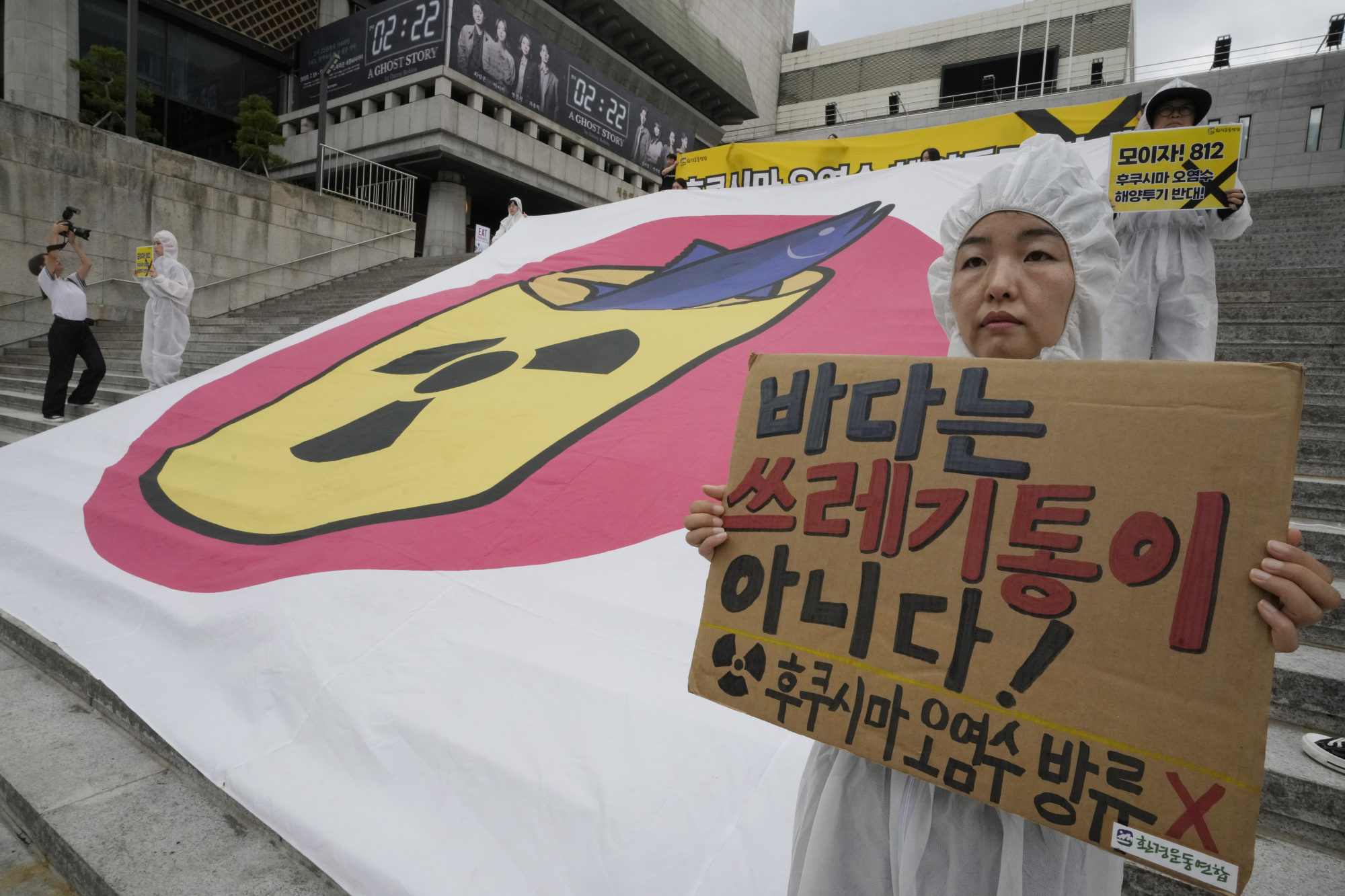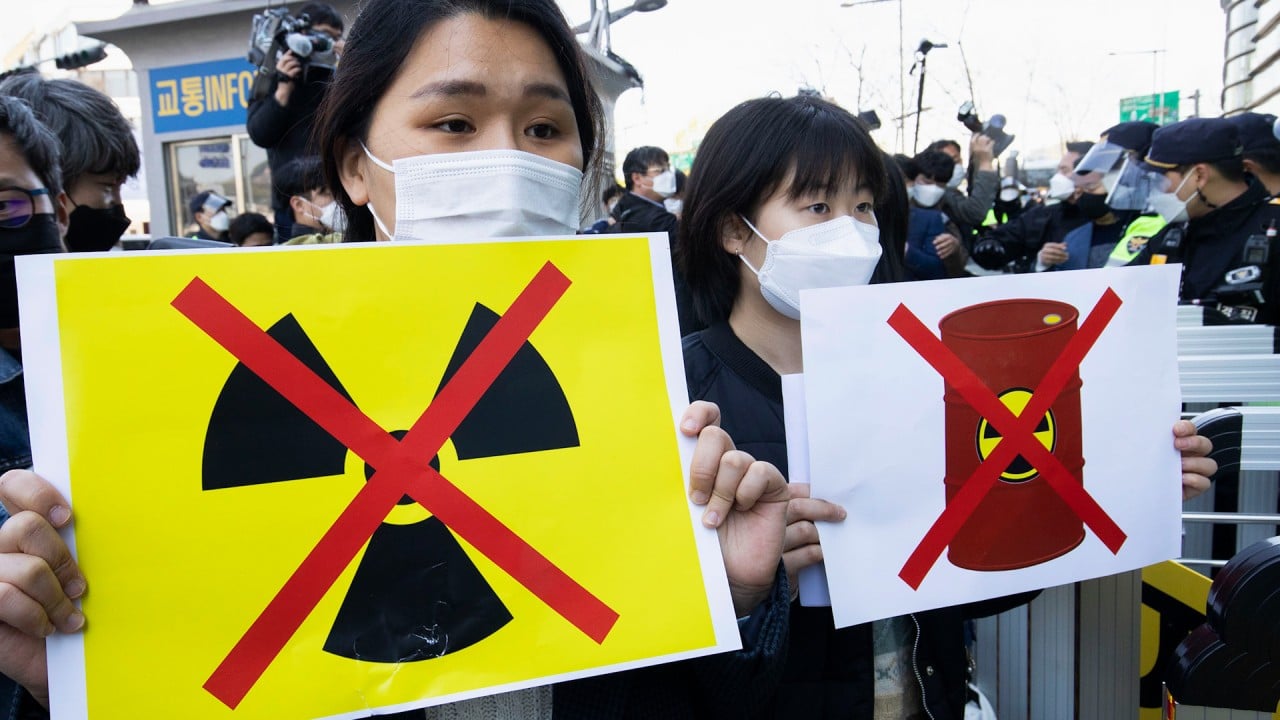
Did Japan win public support for Fukushima water release with ‘nationalist victimisation’?
- Japan accuses China of ignoring the science behind the release plan, of attacking findings of the IAEA and of far more harmful releases from its own nuclear plants
- Critics of Japan’s discharge plan say Japanese media have helped the government convince the nation that it is safe to release the water
Conservative media have for some weeks been insisting that Beijing’s opposition to the release is purely for its political and geopolitical aims, a message that appears to be resonating with the public as bilateral tensions worsen over issues ranging from Taiwan to access to advanced technology and rare earth minerals.
More liberal media have recently joined in the accusations that China’s protests are motivated by political opportunism.
The Japanese government keeps repeating that the IAEA has declared it is completely safe to release the water. That is being repeated by the media and people are finally accepting it
“I really thought the release was going to be postponed, so this is very disappointing,” said Aileen Mioko-Smith, a campaigner with Kyoto-based Green Action Japan.
“A lot of issues connected with the release – primarily a lot of the questions raised by governments on islands in the Pacific that are likely to be most affected by the release – have simply not been answered,” she said.
“The Japanese government keeps repeating that the IAEA has declared that everything is fine and that it is completely safe to release the water. That is being repeated by the media and people are finally accepting it.
“Ordinary people do not have the scientific knowledge to contradict everything they are being told. My sense is that the public really don’t think this is the best course of action, but they also do not know how they can express their concerns and resist,” Mioko-Smith said.
“Now the emphasis is also shifting to how China is ignoring the scientists and is being irrational for its own ends,” she added.
A July 15 report in the Sankei paper accused Beijing of fomenting opposition in South Korea to Japan’s plans for the water, out of anger at Seoul, Tokyo and Washington forging closer diplomatic and security ties, adding that China’s government was using a “velvet paw” to “tighten its grip” on South Korea.
Similarly, the Yomiuri Shimbun on Sunday quoted Akira Amari, secretary general of Japan’s ruling Liberal Democratic Party, as saying, “China makes claims that are not scientific” and that Beijing “uses unfounded rumours as a diplomatic tool”.
Even left-leaning media outlets have started repeating that line in recent weeks, with an editorial in the Asahi newspaper on July 21 stating, “China is using Japan’s plan to release treated radioactive water into the Pacific Ocean for political purposes amid its strained relationship with Japan”.
The editorial criticised Beijing’s decision to step up radiation tests on imported Japanese seafood imports, adding: “It is hard not to suspect that the Chinese government is using the issue of treated water as a way to put pressure on Japan and promote internationally the view that it is Japan that is disrupting the international order.”

Jeff Kingston, director of Asian Studies at the Tokyo campus of Temple University, said Japan and Tepco had been forced into “whataboutism” – accusing China of releasing more radioactive water from its nuclear plants than Japan – because earlier efforts to reassure the domestic public and foreign governments failed.
“Tepco has not covered itself in glory by failing to really consult local stakeholders, local fishermen, nearby residents and civil society at large,” he said. “And by failing to do that due diligence, they have sown mistrust.”
With the reputation of the nation’s nuclear industry tarnished, Japan is “spattering its critics to deflect more criticism”, Kingston said, while the domestic “media marches in unison”.
The Japanese public’s position on the issue has been shifted by claims that the nation is the target of unfair criticism from its rivals, he added.
“Playing the nationalist victimisation card has worked in the past for Japan, and it appears to be working again now,” he said. “I think most of those who were opposed to the release will remain opposed, but there were a lot of people sitting on the fence, and I think they will have been swayed by this new argument.”


